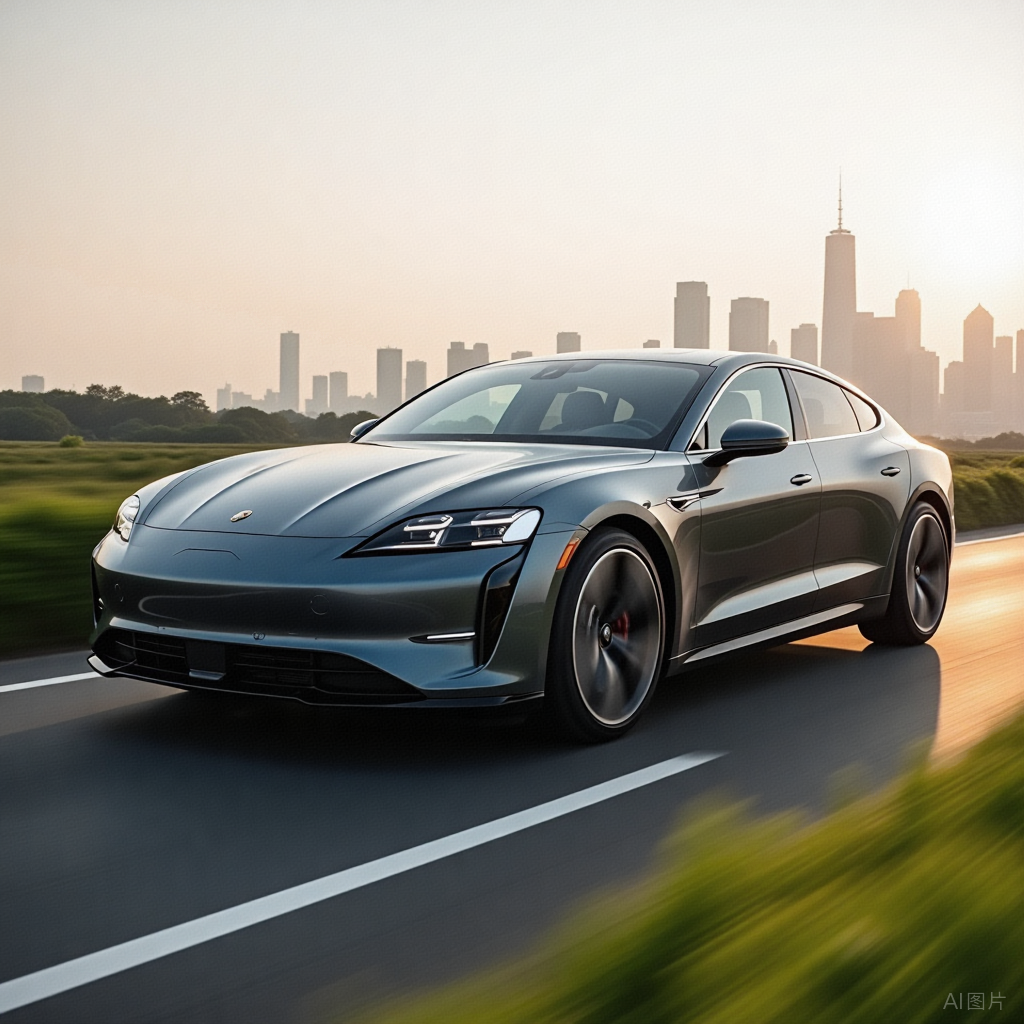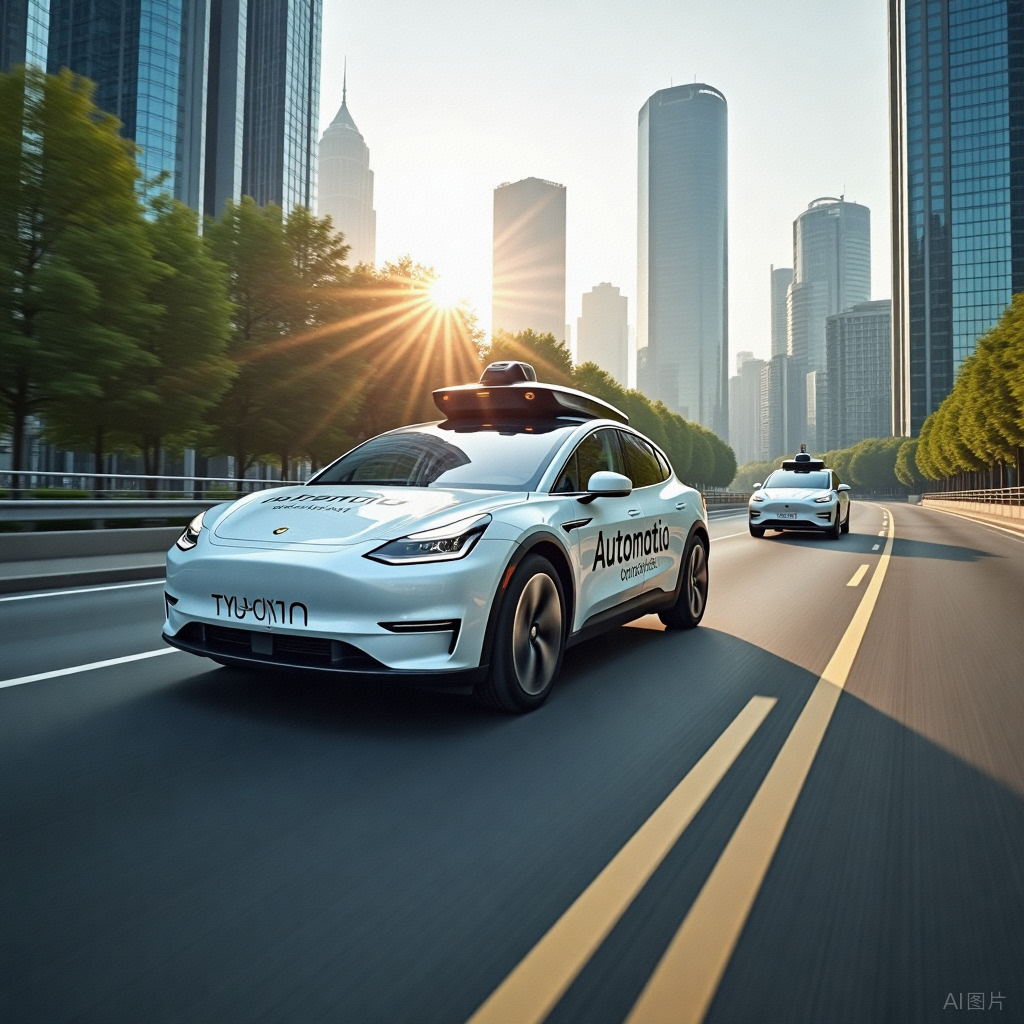Autonomous Driving M&A Frenzy: Zhixing Technology's Surprise Overseas Move at Night – Is a Century-old German Company Up for Sale?
![]() 03/24 2025
03/24 2025
![]() 627
627
Introduction
The autonomous driving sector is buzzing with activity as a wave of mergers and acquisitions (M&A) deals looms on the horizon. What significant moves are being made, and how will they shape our future travel? Today, Let's Talk About Self-driving Cars (Public Account: Let's Talk About Self-driving Cars) delves into this topic. (For further reading, click: "Swedish Autonomous Truck Startup Einride: Preparing for a U.S. IPO with an Expected Market Value Exceeding $5 Billion")

I. The Global Automotive Industry Enters "Money Power" Mode: M&A Amounts Rival SpaceX's Valuation
When Elon Musk joked on X that "German engineers can buy Tesla stocks with their hourly wage," he likely didn't anticipate Chinese manufacturers sweeping across Europe with checkbooks. In the past 18 months, M&A deals in the autonomous driving sector have surpassed $42 billion, equivalent to one-third of SpaceX's valuation.
How intense is this "arms race"?
Zhixing Technology made a surprise move on Germany at night, acquiring a company for an undisclosed price estimated by the industry to exceed 800 million euros.
NXP swallowed Austria's TTTech Auto for $625 million, whose clients include NASA's Mars rover project.
Qualcomm spent $4.6 billion last year to acquire Veoneer, setting a record for the highest acquisition in the automotive software sector.
Even more astonishing is the efficiency of M&A: A top-tier Tier 1 executive revealed that evaluating an autonomous driving startup now "takes as little as 17 days from due diligence to signing," akin to snatching up inventory in live streaming sales.
The industry has even seen a new model of "bulk acquisition" – a Chinese consortium bought three Munich-based lidar companies at once last month, with transaction documents filling 12 suitcases.
Behind these numbers lies a bloody battlefield:
Global automotive electronics M&A deals surged 247% year-on-year in 2024.
Acquisitions involving lidar saw an average premium of 389%, setting a record in tech M&A history.
European autonomous driving patent transfers surged, with Germany alone closing 4,700 deals.
"This isn't M&A, it's harvesting World War II legacies," joked a director of an investment bank.
When a Chinese manufacturer bought a chip company founded by Bosch's former CTO, Germany's Der Spiegel lamented, "We're selling our ancestral recipes for mask money."
II. Hiring People Isn't as Good as Buying Factories: The Offensive and Defensive Battle of Autonomous Driving "Chokepoints"
On the surface, this is a capital game, but in reality, it's a life-or-death race for the "big three" of autonomous driving:
1. Chips: The arms race for computing power
The German company acquired by Zhixing Technology holds avionics-grade safety chip technology capable of operating in extreme environments from -55°C to 175°C.
Black Sesame Technologies bought a Dutch IP vendor last year, acquiring the "nuclear weapon" of memory-computing integrated chips.
Horizon Robotics secretly acquired a British AI chip team, gaining the black technology of "tripling computing power with 1 watt".
2. Software: The gold content of code is sold by weight
TTTech Auto's middleware system supports Mercedes-Benz's L3 autonomous driving, with code lines exceeding Windows XP.
The acquired Austrian team once wrote mission systems for the F-35 fighter jet, requiring a software fault tolerance rate of 99.9999999%.
After buying a Stuttgart-based software company, a Chinese manufacturer found that its logging system could trace every bug back to the specific programmer's breakfast choice.

3. Sensors: The Great Escape of Lidar
RoboSense acquired a Finnish company to obtain the "snow and fog penetration algorithm," with tests showing a 72% reduction in false alarms in blizzard weather.
A mysterious Chinese investor bought a French lidar factory, with drawings showing its 1550nm laser capable of burning through a 0.5mm steel plate.
After DJI Automotive poached a German team, the cost of millimeter-wave radars dropped by 60%, cheaper than counterfeit AirPods.
The most dramatic part is the talent war: A Munich engineer showed the author a headhunter email – a Chinese company offered "80,000 euros per month + Shenzhen Bay No. 1 Apartment + full coverage for children's international school," with a note saying, "Pets can ride business class."
III. "Gods Fighting" Amid the M&A Frenzy: From Conference Rooms to Courtrooms
This capital game is far more exciting than it appears:
NXP's acquisition of TTTech Auto encountered EU antitrust investigations, with documents showing that both parties negotiated at the Munich Oktoberfest.
A lidar M&A deal involving military technology alarmed the German Ministry of Economic Affairs for review, and the transaction was forced to add a "no transfer to third countries" clause.
Zhixing Technology's German acquisition exposed a bidding war, with a Korean consortium emerging at the last minute, and representatives from both sides "bidding up until five minutes before boarding" in the Frankfurt Airport VIP lounge.
Even more interesting is the magical reality of technology integration:
After acquiring an Italian company, a Chinese manufacturer found that its millimeter-wave radar algorithm needed to be paired with a specific brand of Italian coffee machine to work efficiently.
The German team insisted on using Teambition rather than WeChat for communication, forcing the Shenzhen headquarters to set up a dedicated server.
Austrian engineers demanded that a leather steering wheel simulator be installed in the conference room, claiming, "I can't write code without the feel of driving."
The capital market is also staging dark humor:
Employees of the acquired TTTech Auto collectively bought Tesla call options, believing that their technology would boost FSD.
A self-driving concept stock plunged 17% after announcing an acquisition, as investors discovered that the target company's founder was the "PPT God".
A Korean analyst said that Chinese manufacturers "overpaid," and the next day was outed by domestic netizens for holding Samsung stocks.
IV. The New Dimension of Hidden Battles: When Autonomous Driving Meets Geopolitics
This wave of M&A has long surpassed commercial scope:
The Committee on Foreign Investment in the United States (CFIUS) blocked seven Sino-U.S. autonomous driving M&A deals.
The EU passed the "Critical Technologies Act," listing lidar as a "strategic asset".
Japan's Ministry of Economy, Trade, and Industry secretly established the "Autonomous Driving Technology Preservation Section" to monitor patent flows 24/7.
Chinese enterprises have honed the "M&A art of war":
Divide and conquer: Acquire sensitive technologies through multi-layer structures in Singapore and the Cayman Islands.
Technology for market access: Promise to build factories in Europe in exchange for approval, with one project creating the myth of "acquiring land for 1 euro".
Russian nesting dolls of talent: Retain the original CEO after acquisition but install a "co-general manager" to control financial rights.
The classic case is the acquisition war of a radar manufacturer:
Chinese capital controlled the German company through a Luxembourg fund.
Established a research and development center in Poland to divert core technologies.
Applied for Chinese patents for key technologies and initiated "patent invalidation" litigation in Munich courts.
Ultimately defeated the German company using German law.
The above four steps, closely linked and thrilling, can be listed as a classic case in business schools!
"This isn't M&A, it's a dimensionality reduction attack," sighed a partner at an international law firm, "The Chinese have written Sun Tzu's Art of War into M&A clauses."
V. How to Divide the Trillion-dollar Pie? Autonomous Driving Enters the "Warring States Era"
PwC predicts that by 2030, the scale of autonomous driving M&A will exceed $200 billion.
But behind the madness lie three major life-or-death tests:
1. Integration failure rate of 87%: Some statistics show that in the past five years, less than 13% of automotive electronics M&A deals have truly achieved technological synergy.
The most tragic case: An American company spent $1.2 billion to acquire an Israeli team, only to find that the core algorithm required specific Jewish dietary regulations to operate.
2. Geopolitical black swans: A Chinese company's acquisition was penalized with a "war surcharge" due to the Russia-Ukraine conflict, ultimately paying an additional 230 million euros.
When a Korean company acquired a German enterprise, it was forced to include a "no office kimchi" clause in the contract due to cultural disputes.
3. Technology roadmap gambling: The arms race between the lidar faction and the pure vision faction continues, and the solid-state lidar technology acquired by a company for $500 million may become worthless due to breakthroughs in Tesla's FSD.
A "Game of Thrones" is unfolding in the Chinese market:
BYD secretly assembled a 200-person M&A commando team dedicated to "intercepting" overseas targets.
Huawei's Vehicle BU was reported to have set up a "war fund" to prepare for the acquisition of financially distressed European Tier 1s at any time.
Xiaopeng Motors' Chairman He Xiaopeng vowed at an internal meeting, "We will acquire 500 core patents in the next three years."
VI. Epilogue: When the M&A Frenzy Collides with the Technological Singularity
Looking back at history:
In the 2010s, automakers fought fiercely in the field of engines and transmissions.
In the 2020s, the battlefield shifted to batteries and chips.
By the 2030s, autonomous driving M&A may become an indicator of national competitiveness.
An industry leader who wished to remain anonymous revealed, "Buying companies now is like buying vegetables, but the real war begins after the acquisition."
This sentence reveals a cruel truth – when Chinese enterprises buy the "technological legacies" of Bosch and Continental, they must navigate cultural conflicts, technology integration, and geopolitical games next.
Perhaps, as a German engineer complained on LinkedIn, "The Chinese have bought our laboratories, but they can't take away the soul that leaves work punctually at 4 pm."
This wave of autonomous driving M&A frenzy spanning Europe and Asia will ultimately test who the true helmsmen of the smart car era are.
In short, Let's Talk About Self-driving Cars (Public Account: Let's Talk About Self-driving Cars) believes that the wave of M&A in the autonomous driving sector has already begun, and this storm will bring earth-shaking changes to the entire industry. Let's wait and see how cool future travel will become because of these M&A deals! Dear readers, what do you think?








